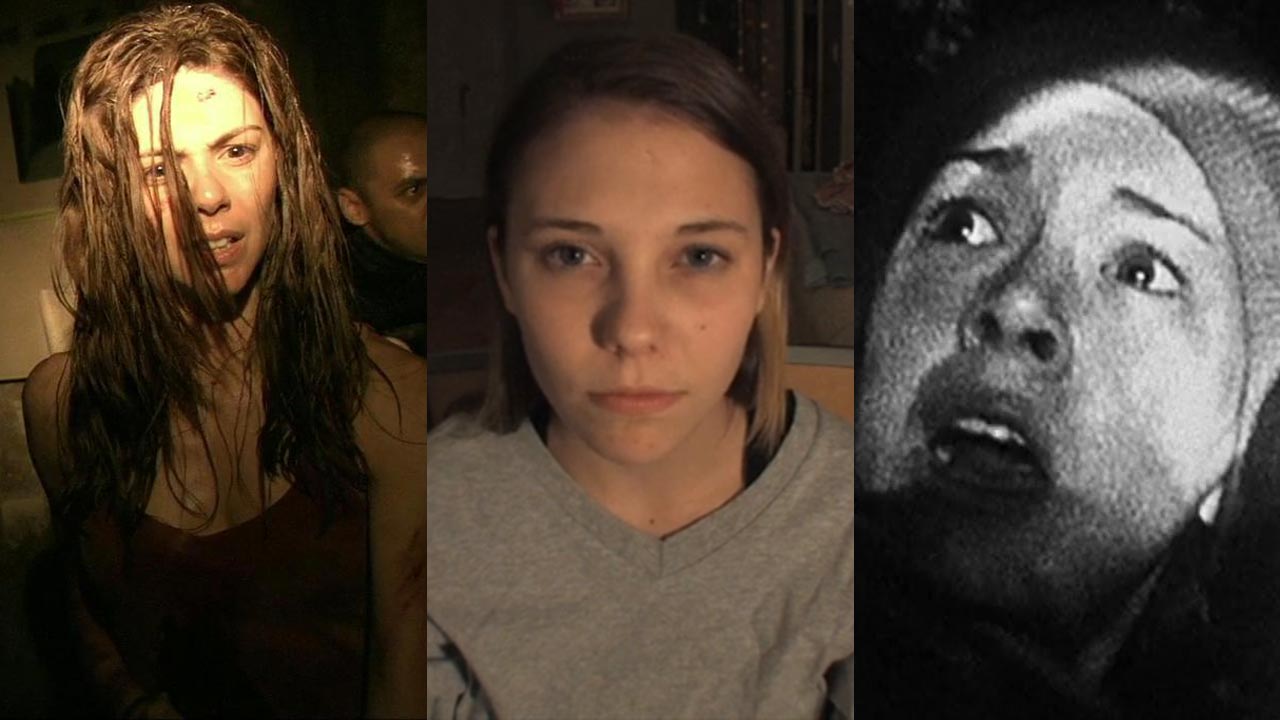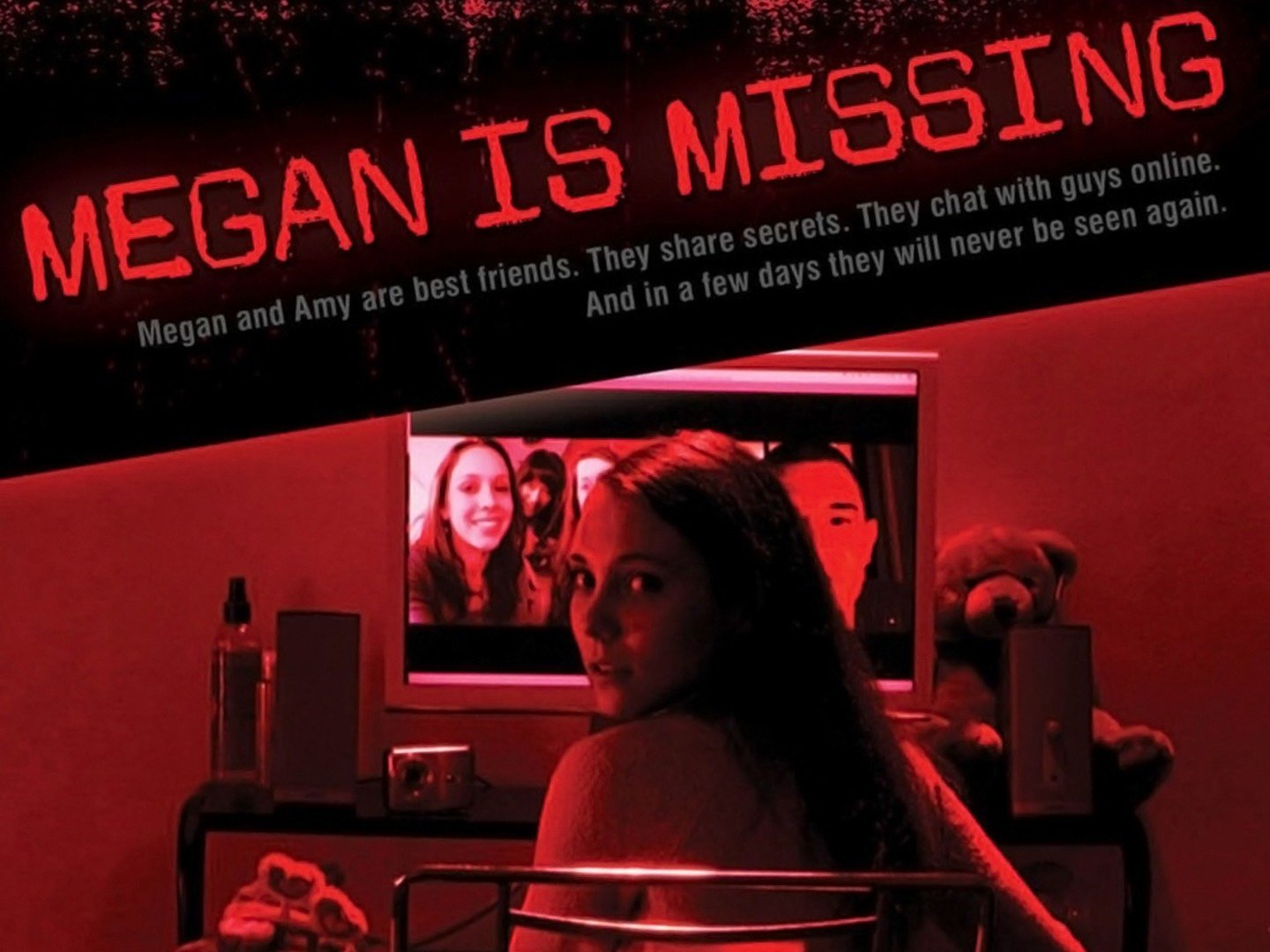Megan Is Missing: A True Story That Shook The World
So, let's just dive right into this, folks. You've probably heard about "Megan Is Missing," a movie that sent shivers down the spines of many when it was released back in 2011. But here's the deal—this isn't just some random horror flick cooked up in Hollywood. No, this is a story inspired by real-life events. Real-life horrors that made people realize just how dangerous the internet can be. This film isn't just entertainment; it's a wake-up call for parents and teens everywhere.
Now, if you're sitting there thinking, "Yeah, yeah, I've seen a million movies about creepy stuff happening online," hear me out. "Megan Is Missing" is different. It's raw. It's real. It's the kind of story that sticks with you long after the credits roll. And guess what? It's based on actual events that unfolded in a world where social media and online interactions are as common as breathing. So, if you're curious about the truth behind this film, you're in the right place.
Let's break it down for you. This isn't just a movie review or a summary. We're going deep into the heart of what happened, why it matters, and how it changed the way we look at online safety. So, buckle up, because this is going to be an eye-opener. And trust me, you're gonna want to stick around for the ride.
Read also:How To Master Roblox Experiences And Passes A Comprehensive Guide
Understanding the True Story Behind Megan Is Missing
Alright, so here's the scoop. "Megan Is Missing" isn't just a made-up tale to scare the pants off of you. It's rooted in real-life tragedies that happened right here in the U.S. The story revolves around two best friends, Megan and Amy, who get caught up in the dangerous world of online predators. But let's not sugarcoat it—this isn't just about two girls making mistakes. It's about the dark side of the internet and how easy it is for predators to exploit young, unsuspecting victims.
What Happened to Megan?
So, Megan, the main character, starts chatting with a guy online. At first, it seems innocent enough, right? But things take a dark turn when this "guy" turns out to be someone completely different from who he claimed to be. Spoiler alert: it doesn't end well for Megan. This is the part where the movie gets super intense, and it's based on real-life cases where young girls have fallen prey to online predators. The film doesn't shy away from showing just how dangerous these situations can be.
Why Was This Story Made Into a Movie?
Now, you might be wondering why someone would turn this into a movie. Well, the answer is simple: awareness. The filmmakers wanted to shine a light on the dangers of the internet and how easily people, especially teens, can get caught in these traps. It's not just about entertainment; it's about education. And honestly, it worked. The movie sparked conversations about online safety and made a lot of people rethink how they interact online.
The Impact of Megan Is Missing on Society
When "Megan Is Missing" hit theaters, it wasn't just another movie. It was a cultural moment. People started talking about online safety in ways they hadn't before. Parents began monitoring their kids' online activity more closely. Schools started implementing programs to educate students about the dangers of the internet. It was a game-changer, and it all started with this little indie film that packed a serious punch.
How Did Parents React?
Parents were shook. Like, really shook. They realized just how vulnerable their kids were online and how little they knew about what was going on in their digital lives. This led to a lot of soul-searching and a push for more transparency between parents and their children. It wasn't just about grounding your kid for being online too much anymore. It was about having real, honest conversations about the risks involved.
What About the Teens?
Teens, on the other hand, were a bit more skeptical. Some of them thought the movie was over-the-top and unrealistic. But deep down, they got the message. They started thinking twice about who they were talking to online and what information they were sharing. It wasn't an instant change, but over time, the movie had an impact. And that's the power of storytelling, folks.
Read also:Who Is Chad Doermans Wife Discovering The Life And Love Behind The Scenes
Real-Life Cases That Inspired Megan Is Missing
Now, let's talk about the real-life cases that inspired the movie. There are so many stories out there that are eerily similar to what happens in "Megan Is Missing." It's not just one isolated incident; it's a pattern. Predators are out there, and they're using the internet to target young, vulnerable individuals. It's a scary thought, but it's something we need to face head-on.
The Case of Elizabeth Smart
One of the most famous cases is that of Elizabeth Smart. She was abducted from her home in 2002 and held captive for nine months. While her case wasn't directly related to online predators, it highlighted the dangers of trusting strangers. It's a reminder that we need to be vigilant in all aspects of our lives, both online and off.
The Ashley Bidwell Story
Then there's the story of Ashley Bidwell, a young girl who met someone online and ended up being kidnapped and sexually assaulted. Her story is a chilling reminder of how easy it is for predators to manipulate and exploit young people. It's heartbreaking, but it's a reality that we can't ignore.
Online Safety Tips for Parents and Teens
Alright, so now that we've talked about the dangers, let's shift gears and talk about solutions. There are things you can do to protect yourself and your loved ones online. It's not all doom and gloom, folks. With a little knowledge and some common sense, you can navigate the internet safely.
- Use Privacy Settings: Make sure your social media accounts are set to private. You don't want just anyone being able to see your personal info.
- Don't Share Too Much: Think twice before sharing personal details like your address, phone number, or school. Once it's out there, it's out there forever.
- Talk to Your Kids: Parents, have open and honest conversations with your kids about online safety. Let them know they can come to you if something feels off.
- Trust Your Gut: If something or someone feels sketchy, it probably is. Trust your instincts and don't be afraid to walk away from a situation that makes you uncomfortable.
How Technology Has Evolved Since Megan Is Missing
When "Megan Is Missing" came out, social media was already a big deal, but it's evolved so much since then. Platforms like Instagram, Snapchat, and TikTok have become integral parts of people's lives. And with that evolution comes new challenges. Predators are getting smarter, and the platforms themselves are struggling to keep up with the ever-changing landscape of online safety.
The Role of Social Media Platforms
Social media companies have a responsibility to protect their users, especially young ones. They've made strides in recent years, implementing better safety features and reporting mechanisms. But there's still a long way to go. It's a constant battle between innovation and safety, and it's something we all need to be aware of.
What Can Users Do?
At the end of the day, the responsibility doesn't just lie with the platforms. Users need to take an active role in their own safety. That means staying informed, using the tools available, and being smart about who you interact with online. It's a shared responsibility, and we all have a part to play.
The Psychological Impact of Online Predation
Let's not forget about the psychological impact of these kinds of incidents. Being a victim of online predation can leave lasting scars. It can affect a person's mental health, relationships, and even their ability to trust others. That's why it's so important to address these issues head-on and provide support for those who have been affected.
Seeking Help
If you or someone you know has been a victim of online predation, it's crucial to seek help. There are resources available, like hotlines and support groups, that can provide guidance and assistance. You're not alone, and there are people out there who care and want to help.
The Future of Online Safety
Looking ahead, the future of online safety is both exciting and daunting. Technology is advancing at lightning speed, and with that comes new opportunities and new challenges. The key is to stay informed and adaptable. We need to continue the conversation about online safety and work together to create a safer digital world for everyone.
Innovations in Safety Features
Companies are constantly working on new ways to keep users safe. From AI-driven detection systems to better encryption, there are some pretty cool things happening in the world of online safety. But it's not just about the tech; it's about how we use it. We all have a role to play in making the internet a safer place.
Conclusion: What You Can Do
So, there you have it, folks. "Megan Is Missing" isn't just a movie; it's a powerful reminder of the dangers that lurk in the digital world. But it's also a call to action. We can't sit back and hope for the best. We need to take steps to protect ourselves and our loved ones. Whether it's through education, technology, or simply having honest conversations, we can make a difference.
I urge you to share this article with your friends and family. Let's keep the conversation going and work together to create a safer online environment. And remember, the internet is a powerful tool, but with great power comes great responsibility. Stay safe out there, and let's make the world a better place, one click at a time.
Table of Contents
- Understanding the True Story Behind Megan Is Missing
- The Impact of Megan Is Missing on Society
- Real-Life Cases That Inspired Megan Is Missing
- Online Safety Tips for Parents and Teens
- How Technology Has Evolved Since Megan Is Missing
- The Psychological Impact of Online Predation
- The Future of Online Safety
- Conclusion: What You Can Do
Article Recommendations


